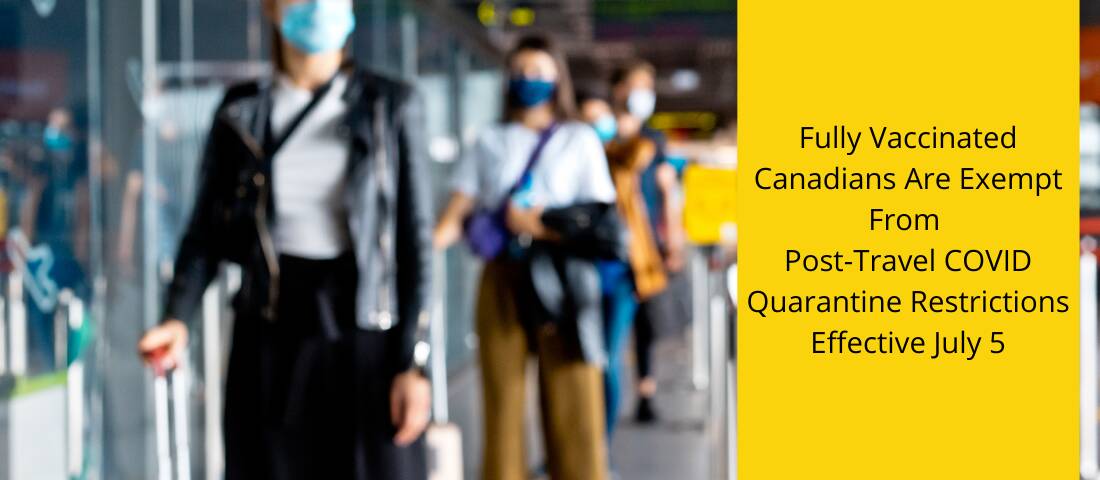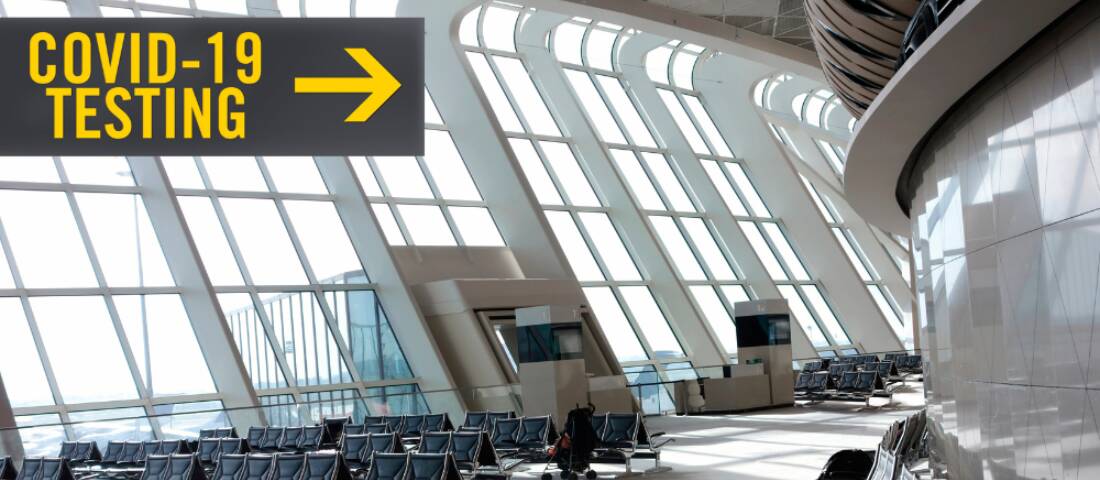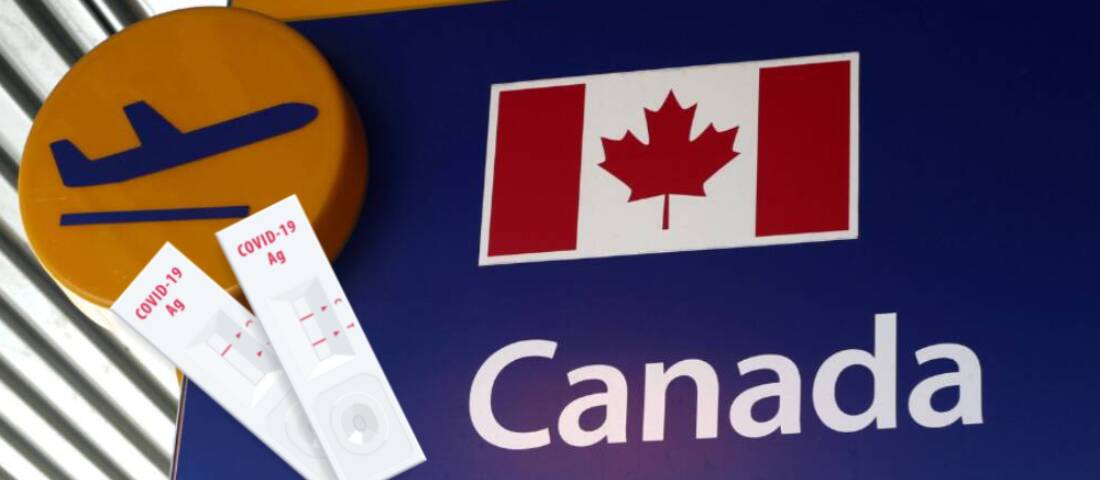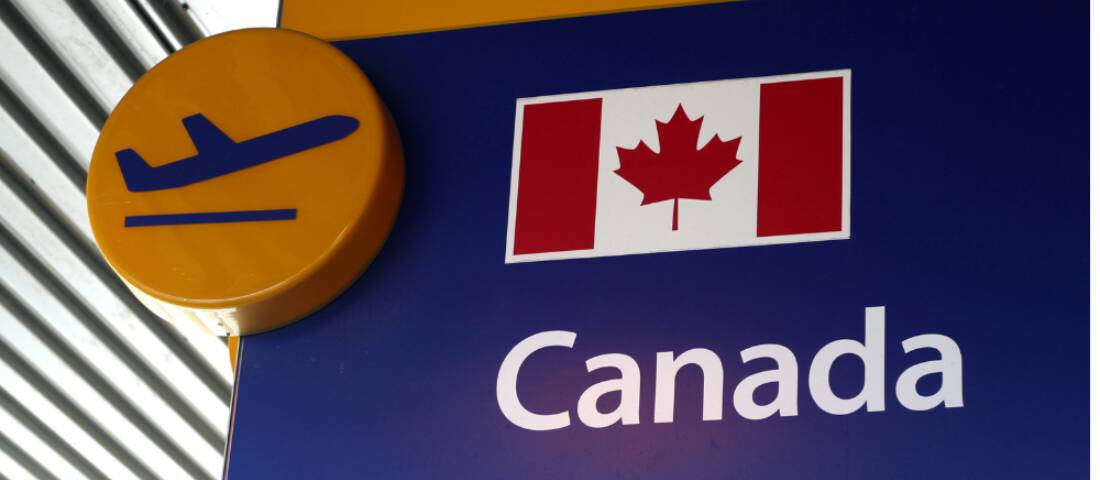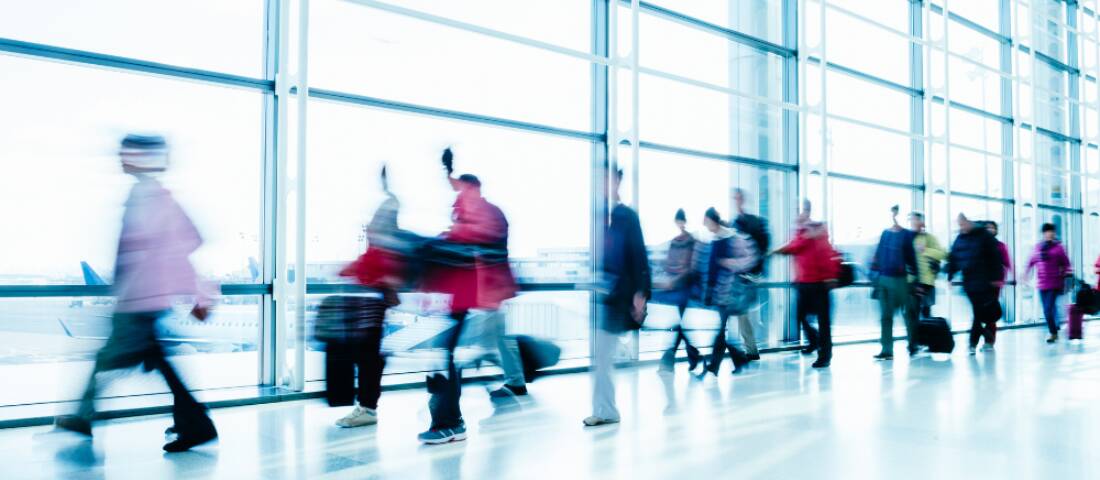Prime Minister Justin Trudeau extended Canada's border closing through July 21. In announcing the extended border closure for non-essential international travel, he said it would take 75% of Canadians getting a first dose and 20% receiving a second before the border rules can be loosened. Canada also announced it has begun easing travel restrictions for fully vaccinated Canadians, permanent residents, persons registered under the Indian Act or a protected person with refugee status.
Effective July 5 at 11:59pm, the government of Canada announced:
- Fully vaccinated Canadians and permanent residents are exempt from current post-travel quarantine restrictions on return to Canada starting July 5 if they test negative for COVID-19.
- Fully vaccinated foreign nationals eligible to enter Canada under travel exemptions as outlined in the current travel restrictions.
- This does not apply to fully vaccinated foreigners aside from a few exceptions, including international students attending school in Canada.
Fully vaccinated travellers are not automatically exempt from the traveller quarantine, the mandatory hotel stay, or day-8 testing requirements. A fully vaccinated, asymptomatic traveller must:
- Have received the full series of a vaccine at least 14 days before entering Canada. The vaccines approved by the Canadian government are manufactured by Pfizer, Moderna, AstraZeneca/COVISHIELD, and Janssen (Johnson & Johnson).
- Travellers can be vaccinated in any country but must provide documentation supporting their vaccination in English, French or with a certified translation.
- Use ArriveCan, an app that allows travellers to digitally provide contact and quarantine information.
- Wear a mask when in public, keep a copy of their vaccine and test results, have a list of close contacts for 14 days after entry to Canada, and follow all other required public health measures.
Unvaccinated air travellers must also book a three-night stay at a government-authorized hotel before their departure to Canada.
Approved Permanent Resident Travellers
Individuals approved for Permanent Residence may travel to Canada. Foreign nationals who have a valid Confirmation of Permanent Residence approved on or before March 18, 2020, are allowed to enter Canada. As of June 21, 2021, any foreign national who holds a valid Confirmation of Permanent Residence (COPR) will be allowed to travel to Canada.
“The safety and security of Canadians remains our top priority as we look to support the careful and safe arrival of new permanent residents to Canada over the next year. These new permanent residents will finally be able to start their new life in Canada and Canada will benefit from their skills when we pivot to post-pandemic economic recovery. At the same time, we’ll continue to offer protection to those who need it most, and keep our place as a global leader in providing a safe haven for refugees.”
- The Honourable Marco Mendicino
Minister of Immigration, Refugees and Citizenship Canada
Individuals with an expired COPR should not book flights or attempt to travel to Canada until they receive a new COPR from IRCC.
Essential Travel or Healthcare Exemptions
As the Canada / U.S. border closing continues through July 21 for nonessential travellers, it is vital that businesses and individuals stay current on the latest travel restrictions and guidelines. Contact us if you need an essential travel or healthcare exemption to cross the border at (403) 452‑9515 or email us directly at contact@ackahlaw.com.

